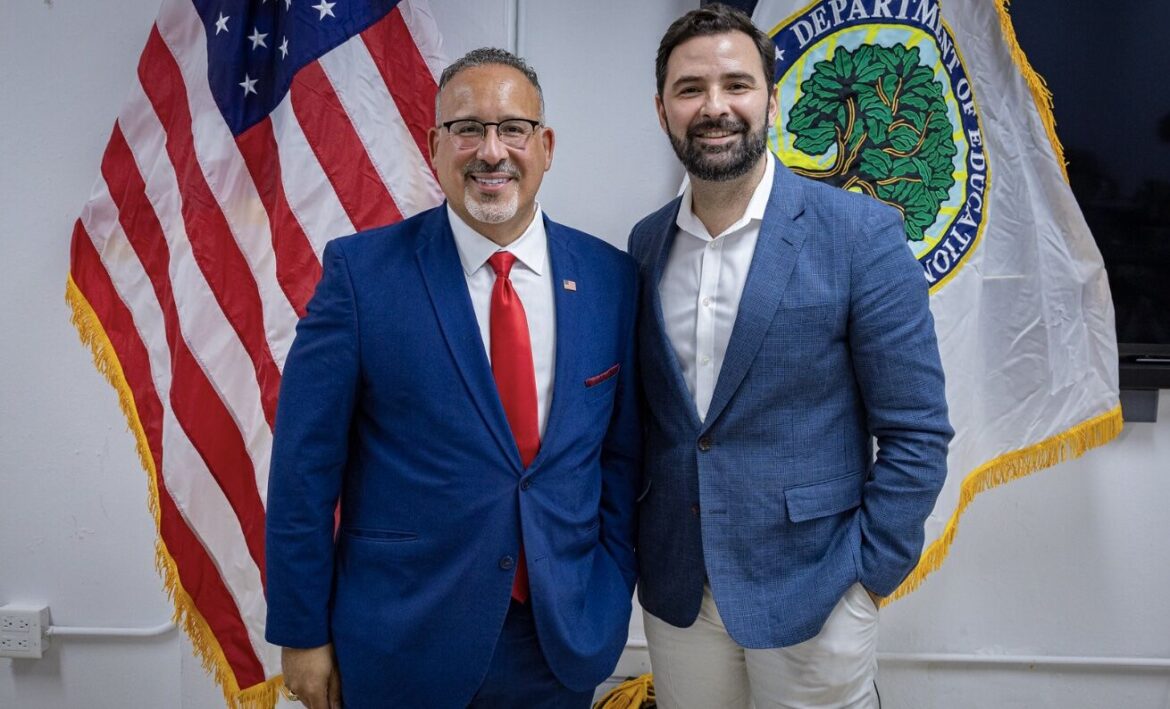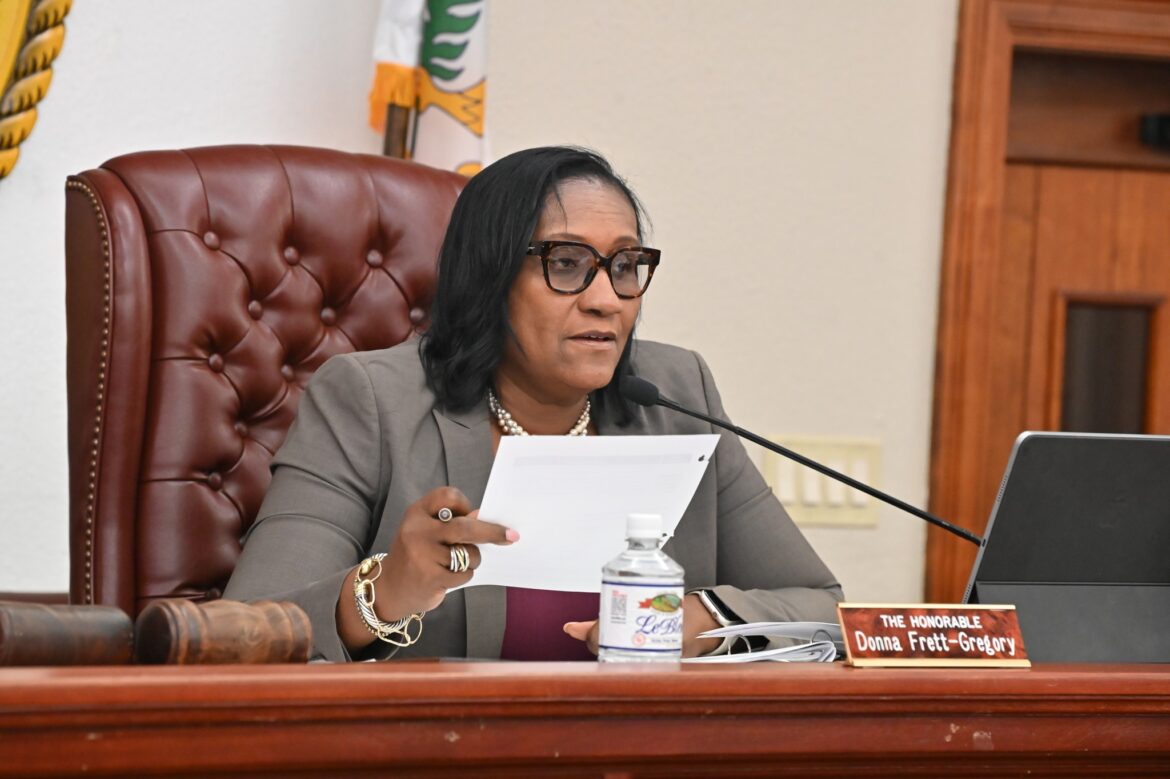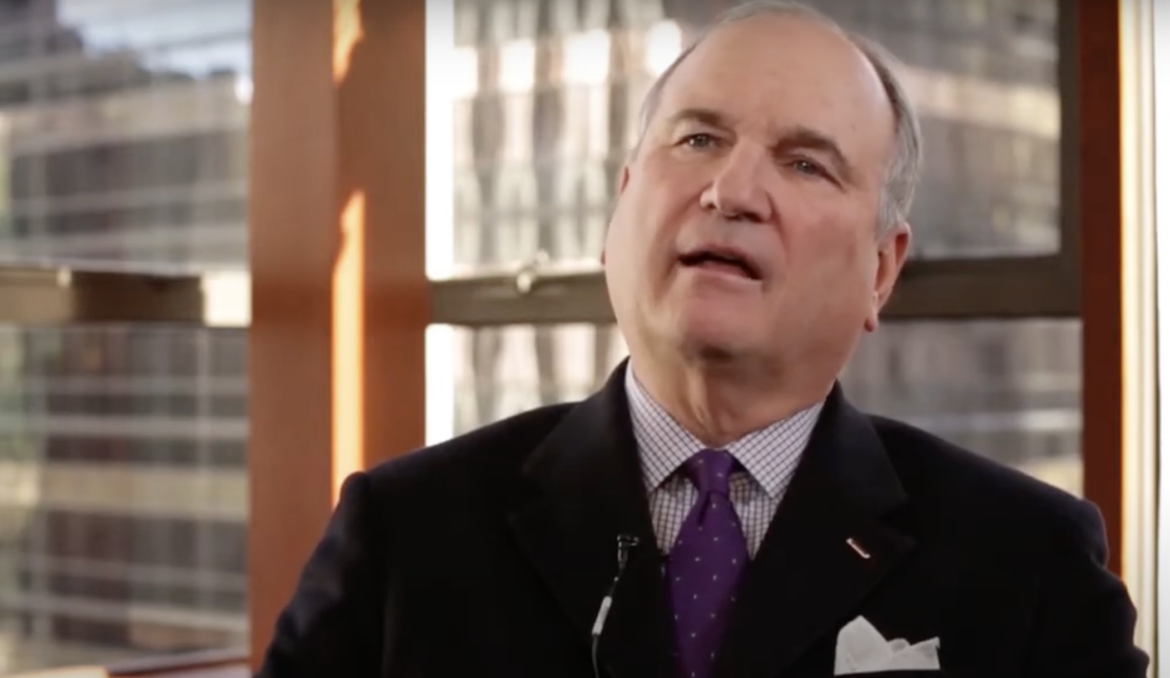Fifteen months after Álvarez & Marsal Public Sector Services (A&M) developed the Comprehensive Corrective Action Plan for the Department of Education (DE), the agency has completed only three of the 37 objectives outlined in the document. This plan has so far committed nearly $140 million in public funds.
A&M was hired as a trustee or fiduciary agent to manage the DE’s federal funds after the U.S. Department of Education imposed the receivership in 2021. This measure aimed to “ensure” the efficient use of funds allocated to the public education system following the devastation caused by Hurricanes Irma and María in 2017.
According to progress reports submitted to the Centro de Periodismo Investigativo (CPI), the multimillion-dollar investment has resulted in the creation of a Compliance Office. This office is tasked with ensuring that funds are spent in accordance with federal laws and regulations. Alongside the DE’s Federal Affairs Office, digital tools have been developed to streamline grant planning and expenditure.
The CPI sought responses from both the DE and the U.S. Department of Education on whether the trustee would remain in place amid President Trump’s push to dismantle the agency, but neither provided answers.
Between 2017 and 2025, federal funding for the DE increased from over $929 million to $2.3 billion. This means that 35% of the agency’s budget in 2017 came from federal allocations, increasing to 58% for the current fiscal year, according to the Fiscal Control Board’s analysis.
The original $79.7 million contract with Álvarez & Marsal has been amended three times, adding $59.3 million to the agreement. The trustee is paid with a combination of federal and state funds from the DE’s budget.
The purpose of hiring a third party as a fiduciary agent or trustee is to assist the Department of Education in the financial management of federal grants, internal controls for payroll and human resources, and in improving processes related to procurement, contracting, accounting, finance, and contract administration. The third party is also responsible for developing the Corrective Action Plan and providing feedback on its implementation and compliance.
However, since the trustee’s involvement, the DE’s service and purchases contracts have tripled, as shown by a CPI review of the Puerto Rico Comptroller’s Office Contract Registry regarding the DE. The trustee does not decide who the DE hires, but is supposed to oversee accounts related to federal grants and contractor payments when the DE justifies the need for the service or purchase.
From 2017 to 2021, the DE’s contracting amounted to $2.1 billion over four years. In the subsequent four years under receivership, from March 2021 to March 2025, contracting rose to $6.6 billion. During this period, Álvarez & Marsal has been the DE’s main contractor. Additionally, the agency awarded a $77,999 contract to NTDS Consulting, registered in 2022 by Francisco Martínez Oronoz, former director of the Federal Affairs Office under former DE Secretary Eligio Hernández, to “support the compliance and execution of the Comprehensive Corrective Action Plan” for three months.

Photo provided
According to Comptroller Yesmín Valdivieso, the fiduciary agent must “ensure that processes occur, improve, and that federal funds are used in compliance with all regulations.” Yet, the Comptroller said about the DE: “Every time we go there, we find something wrong, people stealing or doing things incorrectly. The findings are never trivial,” she said in an interview with the CPI.
The imposition of a trustee by the U.S. Department of Education also aimed to ensure that disaster relief funds that Congress allocated were used quickly and efficiently for the benefit of teachers and students. However, this has not happened.
As of February 2025, not a single new school has been built in the past 10 years. Meanwhile, students in the southwest region, affected by the 2020 earthquakes, have been attending classes in trailers since 2022. The DE invested nearly $66 million in purchasing, installing, and equipping these temporary trailer schools.
Even under receivership, the DE has continued to squander money due to a lack of administrative control. For instance, a June 2023 audit report by the Comptroller’s Office revealed that between August 2017 and June 2022, the DE paid $288,414 for electricity and potable water services for 10 of the 90 schools closed between 2017 and 2018 in the Mayagüez region. Similar situations were found in the Arecibo and San Juan regions.
Álvarez & Marsal’s contract is the third most expensive among all those the DE awarded in the past four years. Other contracts that commit more public funds were with the Public Buildings Authority (AEP, in Spanish) for $550,226,179 and the Infrastructure Financing Authority (AFI, in Spanish) with $522,497,266, for facility rentals and collaborative agreements for school reconstruction and repair.

Progress Remains Slow
In mid-February, the DE revised and submitted a new version of the Comprehensive Corrective Action Plan to the U.S. Department of Education, according to written statements that DE Secretary Eliezer Ramos Parés sent to the CPI. In an interview with Metro, he assured that this plan “will help us ensure the trustee can leave the department in the coming months,” without specifying when.
The latest progress report on the plan acknowledges that advancements in the first quarter were less than in previous periods, attributing this to the change in administration following the elections, as well as the implementation of systems related to human resources management, contracts, and budgeting (Enterprise Resource Planning and Human Capital Management) in public agencies.
The plan involves six areas: operational restructuring; payroll and human resources; purchases and contracts; grant management; accounting and finance; and compliance. Each area has objectives to achieve before the trustee’s departure.
The areas where the DE has made little progress are operational restructuring and compliance. The latest report indicates “limited governance and oversight of key office operations and performance, leading to poor coordination and fragmented decision-making.” The agency also acknowledges a lack of personnel in the purchase department, real estate, and equipment areas.
By March 2023, the Office of Management and Budget (OGP, in Spanish) authorized the DE’s organizational structure change to create a new Compliance Office within the agency. However, it wasn’t until August 2024 that a director was appointed to oversee the federal funds’ management in compliance with federal laws and regulations.
Regarding grant management, objectives such as creating and digitizing the standard workflow and templates for grant planning, developing detailed budgets for each, and training coordinators on these tools have been completed.
The General Services Administration (ASG, in Spanish) has been involved in the receivership since May 2024, reaching an agreement with the DE to oversee purchases and develop a governance framework to expedite approvals and strengthen controls in procurement and contracting areas.
In payroll and human resources, the report states that delays in hiring, transfers, and dismissals are due to a lack of updates between grant accounts and the Human Resources Office’s employee lists. “Currently, the DE lacks internal controls to ensure that the semi-annual certifications received and the distribution reports comply with federal regulations,” the document states.
In accounting and finance, the report recommends that the department implement “consistent compliance practices across all its units,” as well as “new quality control processes and training to strengthen visibility and interdepartmental cooperation.”
Ramos Parés said his agency has already begun negotiations to renew A&M’s contract, which expires on March 31 of this year. “This contract is required for managing and disbursing federal funds, and in compliance with this requirement, we will be renewing the contract,” the Secretary assured in a written statement to CPI questions about the trustee’s continued presence while the Trump administration seeks to dismantle the U.S. Department of Education.
“The trustee will remain until the U.S. Department of Education determines they have completed their work, until we demonstrate that we are doing things right,” the Comptroller concluded.
The experience of other U.S. territories is that receiverships have lasted between 14 and 20 years.
Historical Noncompliance
This is not the first time the DE has been classified by the U.S. Department of Education as a “high-risk grantee.” The agency received this designation after former Secretary Víctor Fajardo was convicted of corruption in the 1990s. Near the end of his administration in October 2004, former Secretary César Rey Hernández agreed to a compliance plan with the federal agency for three years, which continued under his successor, Rafael Aragunde Torres.
This agreement established seven objectives that the DE had to meet to remove the high-risk designation, focusing on improving federal grant management for regular and vocational schools, special education, and adult education programs. Additionally, the agency had to modernize and improve its payroll, inventory, and procurement systems, under the warning that if these goals were not met, grant management would be transferred to a fiduciary agent.
In the absence of a trustee, the DE was not forced to hire a firm like Álvarez & Marsal. The plan’s implementation was handled between the Puerto Rico Federal Affairs Administration in Washington (PRFAA) and Education, Aragunde Torres told the CPI.

Screenshot
Four years later, the U.S. Department of Education expressed satisfaction with “the progress the Puerto Rico Department of Education has made in completing many of the actions established in the MOA [memorandum of agreement], with the exception of four areas…”
The areas still in noncompliance by 2008 were equitable service provision under the Title I-A program to improve the academic achievement of disadvantaged students, the payroll system, acquisitions, and property and equipment management.
In 2011, then-Governor Luis Fortuño, along with his third Education Secretary in the four-year term, Jesús Rivera Sánchez, announced the removal of the high-risk designation for the agency.
Background of Álvarez & Marsal
Registered in Delaware, Álvarez & Marsal is a multinational consulting firm with offices on several continents. It not only has experience in education but also offers restructuring, merger, and acquisition transaction services. In Puerto Rico, it has seven active limited liability companies registered as foreign entities with the Department of State, covering areas such as health, capital investment, infrastructure, among others.
Álvarez & Marsal also has experience in territories like the U.S. Virgin Islands and Guam, where the U.S. Department of Education also required a trustee to manage allocations and grants. The Guam Department of Education comprises 40 schools serving 27,000 students and employs around 3,500 staff. There, it took A&M 14 years and $42 million in public funds for the U.S. Department of Education to return fund management to the local government.
In the U.S. Virgin Islands, the contract signed in 2007 with A&M lasted less than four years after the Department of Education’s Office of Inspector General pointed out that the company had not addressed systemic internal control weaknesses. Washington, D.C.-based firm Thompson, Cobb, Bazilio & Associates replaced Álvarez & Marsal in 2010 but exited the scene in 2020 to be replaced by McConnell & Jones LLP.
The U.S. Department of Education’s demands on Puerto Rico are almost a mirror of those imposed on the U.S. Virgin Islands since 2007, as seen in letters detailing the actions the local agency and fiduciary agent must take to conclude the receivership. For example, requirements include establishing a separate bank account for Álvarez & Marsal to manage payments to suppliers and contractors with grant or federal program funds; establishing an employee time and attendance system; and developing a register of property acquired with grants.
After nearly 20 years of failing to meet the conditions imposed by the U.S. Department of Education, the Virgin Islands Legislature expressed its frustration and distrust of the fiduciary agent. In an October hearing, the Chair of the Budget, Procurement, and Finance Committee of the Virgin Islands Legislature, Senator Donna A. Frett-Gregory, expressed concern that after so long, “the conversation we are hearing today seems like I’ve heard it for the last 17 years. We’ve spent around $42 million on this compliance agreement and we’re still talking about standard payroll and procurement procedures. This is a scandal.”

Photo provided
McConnell & Jones partner Sharon Murphy, who attended the hearing, claimed that delays in implementing standard procedures for payroll payment, for example, are due to the Virgin Islands Department of Education’s difficulty in recruiting and training staff for those tasks.
Senator Ray Fonseca, for his part, was skeptical about the trustee’s work because “the best thing for you [McConnell & Jones, LLP] is to keep us in these conditions [those the U.S. Department of Education points out to correct].”
The Virgin Islands Department of Education consists of 21 schools, nearly 900 teachers, and around 10,000 students.
Meanwhile, although Álvarez & Marsal’s departure from Guam was announced in October 2023, the U.S. Department of Education conditioned the territory’s removal from the high-risk list on appointing a Chief Financial Officer, a Deputy for Finance and Administration, and a Federal Programs Administrator for its Department of Education, among other requirements. Some of these demands coincide with aspects of the testimony submitted a month ago by newly appointed Puerto Rico’s DE Secretary Eliezer Ramos Parés during his Senate confirmation hearing.
“The figure of the Chief Financial Officer will be created to address efficient resource management, transparency, and accountability,” Ramos Parés told the Senate on February 1. At that time, he announced the creation of the Compliance and Transformation Offices, “as part of the department’s internal component, responsible for verifying compliance across different offices, allowing for greater transparency in processes and the eventual departure of the trustee or fiduciary agent.”

Screenshot
A&M has also had contracts in other states. The company’s managing director, William (Bill) Roberti, led an advisory committee for the St. Louis, Missouri, public school system, where he was criticized for advocating the dismissal of 1,400 teachers. Another school board that hired the firm shortly before Hurricane Katrina was the city of New Orleans, Louisiana. A&M was contracted to fix the public education system’s finances, and initially, its proposal was to cut the education system’s budget as a way to combat corruption.
There are long-standing ties between A&M and the Republican Bush family administrations, which have had two U.S. presidents. Roberti, a career military officer who distinguished himself as an executive in the textile industry, was appointed by George H.W. Bush to oversee government military apparel contracting in the early 1990s. Another A&M corporate director, David Javdan, served as general counsel for the Small Business Administration (SBA) under the Bush administration.


